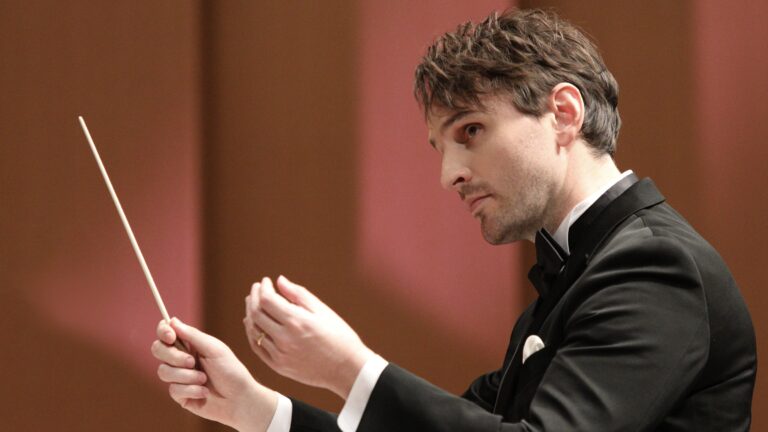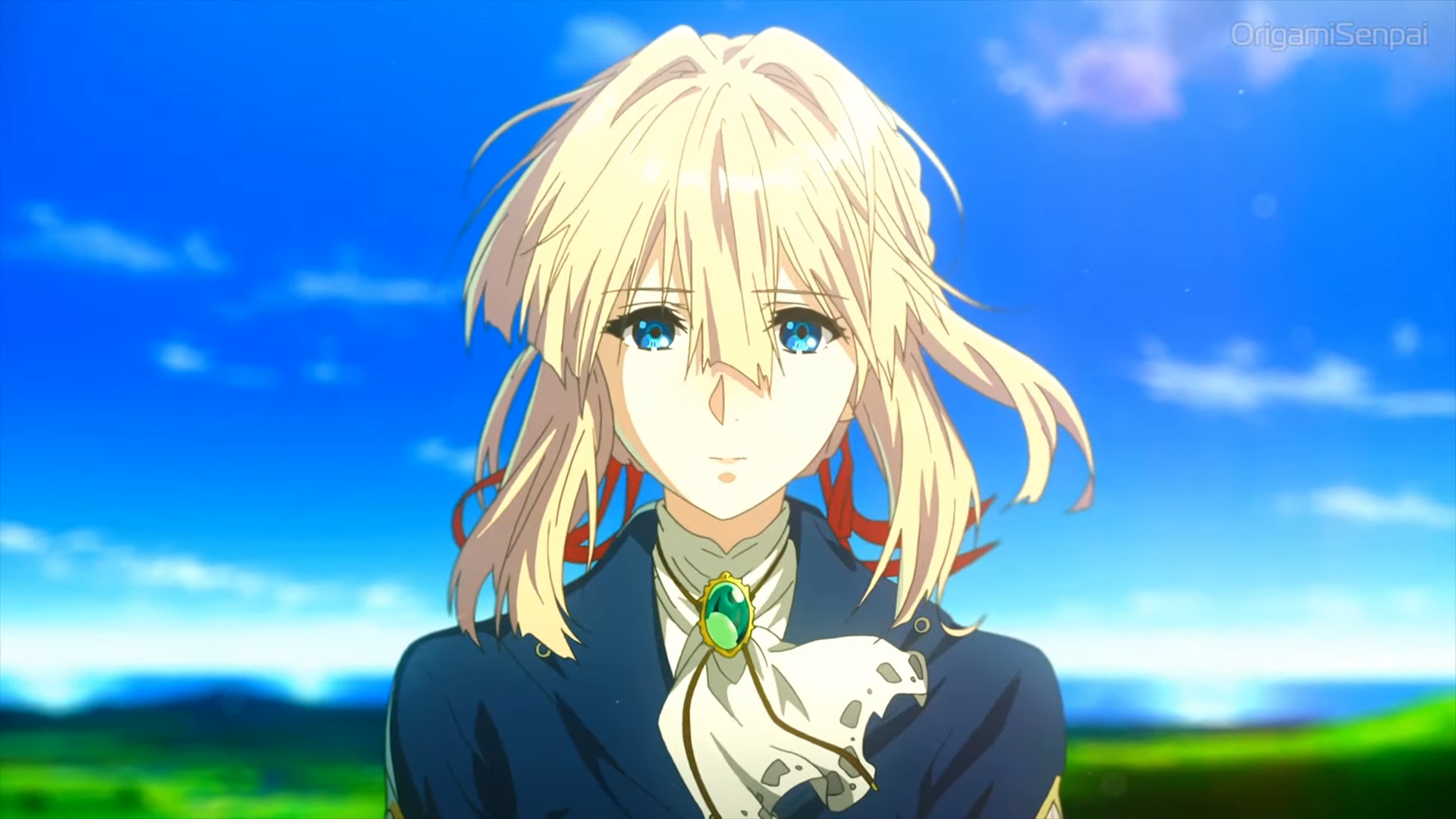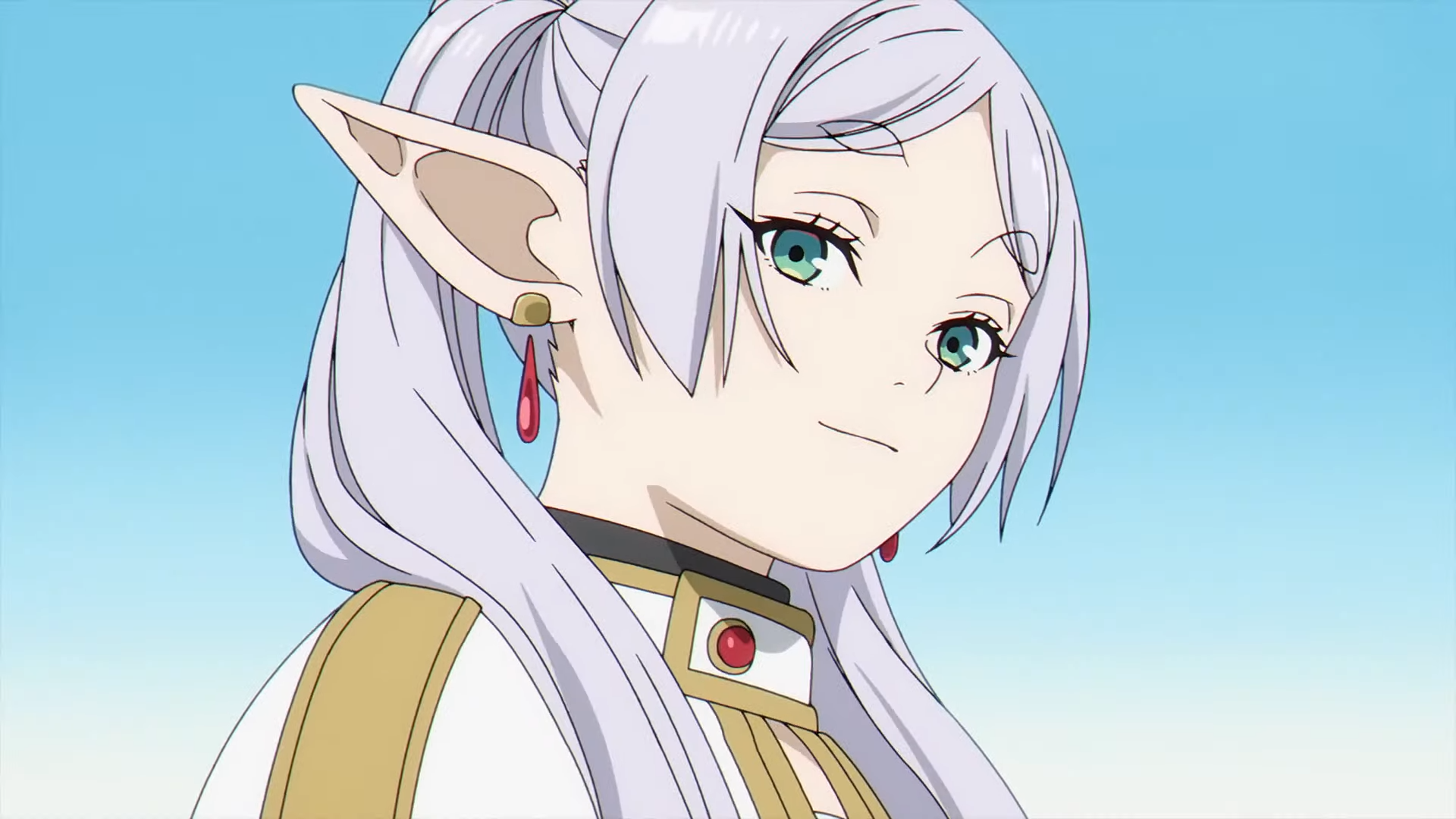Anime Corner had the chance to interview the iconic anime music composer Evan Call about his musical career and the inspirations behind it. Call is known all over the world for his touching music that can be heard in titles such as Violet Evergarden, Muv-Luv Alternative, and the recent My Happy Marriage. His music will be a part of the upcoming Frieren: Beyond Journey’s End anime adaptation, for which he is also working on the ending theme song with milet.
Q: Who would you say are your biggest influences as a composer?
Evan Call: I never really had much of an interest in music until I was around 13 or 14, which is when I took a year of bluegrass guitar lessons with a local teacher. I developed an interest in many different kinds of music over the next few years with a lot of guidance from a good friend, which led me to the many bands and composers that influenced me when I started composing. You might be able to hear glimpses of them in my music, but some are quite a bit different than what people listening to my music would expect. My top ten biggest influences (with some album names) in no particular order would have to be:
- Blind Guardian – “Nightfall on Middle Earth“
- Rhapsody (of Fire) – “Symphony of Enchanted Lands II“
- Wuthering Heights – “Far from the Maddening Crowd“
- Wintersun – “Wintersun“
- Therion – “Lemuria / Sirius B“
- Bill Whelan – “Riverdance“
- The Deseret String Band
- Nobuo Uematsu
- Howard Shore
- Josh Groban
Aside from those listed above and many other composers and bands, I have been greatly influenced by folk music, particularly Celtic, American, and Scandinavian.
Q: What are your three favorite anime? Did they influence your musical epos?
Evan Call: It’s hard to pin down my top three out of all of the anime that I have watched, but if I were to exclude anime I’ve composed for (because of course I’m biased…haha) and narrow it down to anime that had a profound impact on leading me to where I am today, I would choose:
Ergo Proxy – At the time I had never seen anything quite like it, and even to this day it’s something that has stuck with me. I highly recommend it. I wouldn’t say that I was musically influenced by it, but I do like the ambient soundtrack, and the OP theme (“Kiri” by Monoral) still gives me goosebumps when I hear it. The ED theme (“Paranoid Android” by Radiohead) is also a perfect choice for the show.
Wolf‘s Rain – A super unique story with a strange premise that really takes you on an emotional journey. It also features an awesome soundtrack by Yoko Kanno. I would absolutely say that it has had an influence on me musically, and I consider it to be one of my first introductions to jazz-inspired harmonies in an orchestral setting.
Pokémon (from Season 1 through The Johto Journeys) – This was my introduction to anime, and I still dig it! While I haven’t kept up on the anime in a long time, this show along with the Gameboy games (especially Blue and Silver) was something that I was really into as a child. I didn’t really pay much attention to the music at the time, but I got into the soundtracks a bit later when I developed an interest in music. I used to play a few fingerstyle guitar arrangements of some of the tracks back when I was in high school.
Also, outside of TV anime, special mention to the Rurouni Kenshin (Samurai X): Trust and Betrayal OVA and the Ghibli film Spirited Away, both of which feature a great story with wonderful music.
Q: Why did you choose to work in the anime (music) industry? Was it hard for you to „fit in“ as a foreigner?
Evan Call: Let me start with what led to me wanting to pursue music as a potential career. After graduating high school, I went to the local community college for a couple of years with the intention of becoming an English-Spanish translator. I took the highest-level Spanish course that they offered during my first semester and would have to wait until I transferred to a university to continue my Spanish studies. While taking all of my general education classes, I decided to take a few music theory courses that they offered, and I really liked it (I had been dabbling in composing at this time). In fact, I got so into it that I changed the whole direction of my life and decided that I wanted to compose music as a career.
I was quite into anime and video games at this time, and I really started to pay more attention to the soundtracks. After finishing up my two years at the community college, I auditioned for Berklee College of Music with the hopes of majoring in film scoring for my final two years, but unfortunately, I got rejected.I auditioned again the following year and was accepted. While facing my impending graduation from Berklee, I was left with a choice: go to Hollywood or try something totally different and go to Japan (I had been studying Japanese on my own and with Japanese friends after having taken an introductory Japanese class at my community college). I had heard that there were many opportunities for young composers in Japan, so after graduation, I saved up a bit of money washing windows and power-washing fancy houses. Then I took a chance and flew to Japan. I had student loans to pay back, so I really needed a miracle to find work soon. Luckily, I had a random encounter that eventually led to me meeting with everyone at Elements Garden (where I worked until 2016), and shortly after I was offered an assistant position.
A big reason why I chose to work in Japan, aside from the opportunities for young composers, is because I felt that there is more freedom as a composer to write many types of music and to write melodically, two things that are very important to me. It was a little difficult to get used to the difference in culture at first, but since I worked in the studio every day, the other assistants and composers were there to help me figure things out. I was exhausted from speaking and writing in Japanese all day while doing assistant work, arranging, and composing, but I never felt like I didn’t fit in. It certainly didn’t hurt to have kind-hearted people around to lend me a helping hand.
Q: Can you give us the process behind translating the themes and emotions of an anime series into a musical score? Maybe taking Violet Evergarden as an example.
Evan Call: This might be a little long-winded, but I think it’s important to understand the steps leading up to composing before discussing how I actually write the music. First, I like to start with the overall tonal palette (the mood and instrumentation). What is the world like? What are we trying to convey with the story, and how do the characters interact with each other and the world around them? I take these points into consideration and create a template in my DAW (Digital Audio Workstation – I use Digital Performer) that I will use as the basis for my composing and arranging. The template contains the majority of the instruments/synths that I want to use for the anime, and from there I can add or get rid of instruments depending on what the song calls for.
Once that is settled, I will either start with the main theme or sometimes I’ll do a couple of simple songs just to experiment with the direction I want to take the music before I get into writing the main theme and other significant songs. Each anime has a slightly different approach, but for more emotional scores, I tend to put a lot of focus on the melodic side of things.
However, before the score is composed, I always have a meeting with the main staff where we discuss and come to an understanding of the direction of the music. It is usually just before this meeting that I receive the song menu prepared by the Sound Director (Onkyō Kantoku), which is a list of songs they want me to compose with a temporary title and a short description of what kind of scene each song will be used in. Depending on the Sound Director, some menus will even state the general tempo (slow, mid, up) and the ensemble size (small, medium, large) just to give the composer an idea of what they are looking for, and so we don’t take it the wrong direction, but this generally isn’t the norm.
In the case of Violet Evergarden, the menu was very abstract. Many menus will have the songs listed with temp titles such as: “Peaceful Day”, “Comical 1”, “Comical 2”, “Recollection”, “Gentleness”, etc. Violet Evergarden’s TV anime menu, however, used titles that would translate to: Transcendent Beauty, Existence as Absence, Existence as Existence, Microcosm of Life, etc. While both types of menus are fine to work with, I do enjoy writing to a really abstract concept, as it makes me think and consider musical ideas that I might not have thought about if the titles were straightforward. For the Violet Evergarden film, the titles were a bit more on the nose since it was scored directly to the picture, meaning I had the final cut of the film before all of the detail work was done, and I synced the video with my workstation so I could compose directly to each scene. In other words, film scoring.
Getting back to how I translate the themes and emotions, I like to think of melodies kind of as sentences, and I’m trying to tell a story not with words, but with notes. What am I trying to say with this melody? How does the shape of the melody convey the intended emotion? A big leap on a soaring climax can really bring out the passion, but maybe a big leap might be too much early on in the song. Perhaps it’s best saved for the peak? I take many things into consideration when composing (like how dialogue-heavy is the show), and aside from the melody line, the instruments that I choose to play the melody also make a big difference in how the emotion is perceived. Do I want a sense of longing? Perhaps solo French horn, English horn, or oboe might be a nice choice. Do I want a bit of a distant, almost ethereal feel? Maybe a very soft clarinet passage might fit just right. I also like to switch up the instrumentation throughout depending on the flow of the song. Maybe I’ll have just strings, then go to the piano and a solo woodwind. Before reaching the peak of a big emotional song, maybe I’ll bring in some light supporting brass before I crescendo into the climax with the full ensemble, and then fade back into more delicate and soft instrumentation. There are many ways to go about it, but picking the right instrument for the feeling and melody is of the utmost importance. How you arrange the background supporting instruments also changes how the melody is perceived, and I consider that to be just as important as the melody. The sense of tension and release, of movement or stillness… A well-thought-out dynamic arrangement can really take a nice melody to the next level.
Q: What makes or breaks a good piece of music in your opinion? Do you focus on specific genres or try to „experiment“ with them?
Evan Call: I think context can make or break a good piece of music. Each person has their own subjective thoughts of whether something is a good song or not, but when writing for a medium, in this case, anime, the song should fit with the story the majority of the time. However, sometimes you’re requested to write a rap song or something that is very tonally different than the rest of the music, but that’s one thing that I think makes anime so unique. You never know what to expect before you get a menu! Also, with TV anime, the Sound Director is in charge of editing your music into the show, so usually we don’t know when or where our music will be used until it’s already finalized during the dubbing session (when all dialogue, SFX, and music are locked in for each episode). They have a significant amount of influence on how the music is perceived.
As for genre, I don’t usually give it much consideration before I start writing. Sometimes a specific genre is requested, like they want a rock song for a battle scene, or they want a jazz-centric soundtrack, but outside of specific requests I tend to just let whatever happens happen. Sometimes it might have folk music influences, a bit of minimalism, or any number of other stylistic feelings, but I don’t usually set out to compose specifically in a genre. I prefer to think in terms of feeling rather than genre.
Q: Can you share any interesting or surprising experiences you’ve had while working with various anime production teams?
Evan Call: Occasionally I will have the opportunity to work with some of the same staff on different projects, but so far, my longest-running experience was working with Kyoto Animation for the Violet Evergarden series. Over a period of a few years, I had a lot of fun opportunities together with them including location scouting both in Japan and Germany while we were there for AnimagiC (I just came along for the ride). We also had several orchestra concerts over a few years in Tokyo and Kyoto, for which I rearranged a lot of the music to fit the concert ensemble size. At the request of the producers, I was also asked to conduct a few of the main songs, and as I’m not much of a conductor, it was truly frightening. The last time I had conducted was when I was in school conducting just a handful of my classmates, so about 7 years later my next time (aside from a couple of times at rehearsal) was conducting in front of about 3000 people at NHK Hall in Tokyo. I thought I would have a heart attack, but luckily I didn’t mess up (though I’m sure people could tell my conducting was a bit stiff compared to the maestro who conducted the majority of the concert).
Another time for the anime Hakumei and Mikochi, I was asked to write a sea shanty (The Evening Sea Shanty). The music producer (the person who usually hires the composer and oversees various music/soundtrack-related things) on the production called up a bunch of his friends that he used to sing with in college, and they all sang the song together in the studio. We did several different takes and overlayed them, with some being accurate and on the pitch, and other takes in a bit more drunken style to give that authentic shanty feel to it. I’ve had far too many great experiences to list, but those are just some that stood out to me.
Q: What are you currently working on, and what can fans look forward to from you in the future? Especially now with the running My Happy Marriage and the upcoming Frieren.
Evan Call: With streaming becoming more commonplace, the production schedule for anime has shifted to much earlier before the release date. It used to be common to deliver the final mixes for the music about one month before it aired (up until maybe 5-6 years ago), but nowadays it has become common to deliver the final mix anywhere from 6-9 months (sometimes even more) before the show airs (the allotted composing time is still the same though – generally about 2 months for 40-50 songs, also with occasional retakes and fixes). So, I am currently working on many different projects (some I have even finished) that I am unfortunately unable to disclose at this time. I think you’ll be hearing about some of them very soon though!
Aside from anime, I do have an upcoming project for which I had a lot of involvement in the production outside of just the music. Usually, for TV anime the songs tend to be around 2-3 minutes in length, but for this, I was able to compose much more freely and in long form, which allows for a different way of developing motifs and melodies than when I’m limited by what an anime requires (and the amount of music I have to write within a limited time frame). It’s something that I’m very excited to share with you all, so I hope you will check it out when the time comes!
As for now, I’d be very grateful if you would all watch My Happy Marriage and the upcoming series Frieren: Beyond Journey’s End. I’m very proud of the scores I wrote for these two great shows, and I hope you all will enjoy them too. And thanks to Anime Corner for giving me a chance to share my experiences with you all. I probably got a little too in-depth in some aspects, but I hope you will find it interesting. Until next time!
Marcel Kober: Thank you so much as well. It really was a huge pleasure and honor! I‘m sure our readers will enjoy your inside views! The best of luck and keep up the great work!
Check out some of Evan‘s awesome music on Spotify.
© Evan Call, Miracle Bus



Participate In Discussions